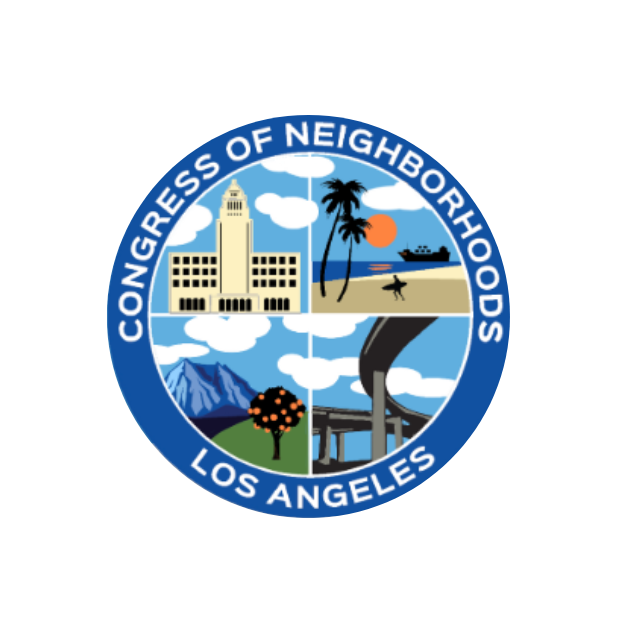Code of Conduct
The Los Angeles Congress of Neighborhoods Planning Committee is committed to creating a safe, comfortable, and enjoyable networking/learning experience. Participants (including attendees, presenters, staff, and volunteers) have a right to an environment where:
Participants will abide by the Neighborhood Council Code of Conduct Policy (see below).
Participants will be treated in a courteous manner.
Participants will enjoy the event free from disruptive behavior, including foul or abusive language or obscene gestures.
Participants will comply with requests from Congress staff regarding their conduct.
Participants will help create a comfortable environment by reporting inappropriate behavior.
Participants will be able to communicate with Congress staff/volunteers if assistance is needed in dealing with an unruly individual, technical assistance, or any issue and/or concerns that a guest may feel the need to report.
Violations of the code of conduct may result in removal from the event, with or without warning.
Neighborhood Council Code of Conduct Policy:
Neighborhood Council Board Members should conduct themselves in a professional and civil manner.
Neighborhood Council Board Members should treat other Board Members and members of the public with respect regardless of the other's opinion, ethnicity, race, religion, religious belief or non-belief, color, creed, national origin, ancestry, sex, sexual orientation, gender, gender expression, age, disability, marital status, income, homeowner status, renter status or political affiliation.
Neighborhood Council Board Members should not, during meetings, functions or events engage in or threaten to engage in any physical attack on any other individual.
Neighborhood Council Board Members should not use language that is threatening, obscene, or slanderous, including profanities, insults or other disparaging remarks or gestures directed toward other Board Members.
Neighborhood Council Board Members should promote and, if necessary, enforce a safe meeting environment. If other Board Members become disruptive or violate the Code of Conduct Neighborhood Council Board Members have agreed to abide by, Board Members should demand that the offending Board Member conduct themselves in a respectful and orderly manner.
Neighborhood Council Board Members should not engage in "bullying" or harassment which is generally defined as follows:
"Bullying" is conduct that meets all of the following criteria:
is reasonably perceived as being dehumanizing, intimidating, hostile, threatening, or otherwise likely to evoke fear of physical hand or emotional distress;
Is directed at one or more Board Members;
Is conveyed through physical, verbal, or technological means;
Substantially interferes with participation opportunities, benefits, or programs of one or more Board Members at Neighborhood Council sponsored activities or events;
adversely affects the ability of a Board Member to participate in or benefit from the Neighborhood Council programs or activities by placing the Board Member in reasonable fear of physical harm or by causing emotional distress; and,
Is based on a Board Member’s actual or perceived protected characteristic (see 2 above), or is based on an association with another person who has or is perceived to have any of these characteristics.
"Harassment" is conduct that meets all of the following criteria
is reasonably perceived as being dehumanizing, Intimidating, hostile, threatening, or otherwise likely to evoke fear of physical harm or emotional distress;
Is directed at one or more Board Members;
Is conveyed through physical, verbal, or technological means;
Substantially interferes with participation opportunities, benefits, or programs of one or more Board Members at Neighborhood Council sponsored activities or events;
adversely affects the ability of a Board Member to participate in or benefit from the Neighborhood Council programs or activities because the conduct, as reasonably perceived by the Board Member, is so severe, pervasive, and objectively offensive as to have this effect; and,
Is based on a Board Member’s actual or perceived protected characteristic (see 2 above), or is based on an association with another person who has or is perceived to have any of these characteristics.

